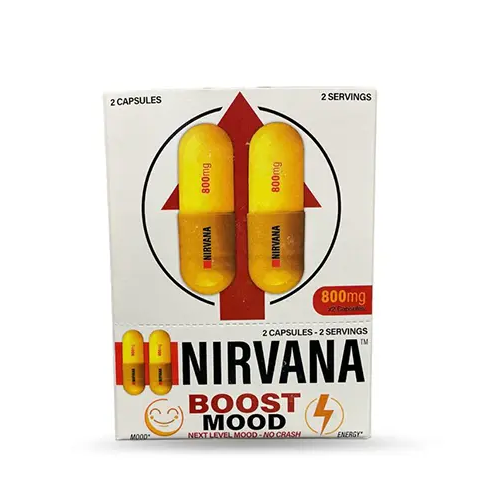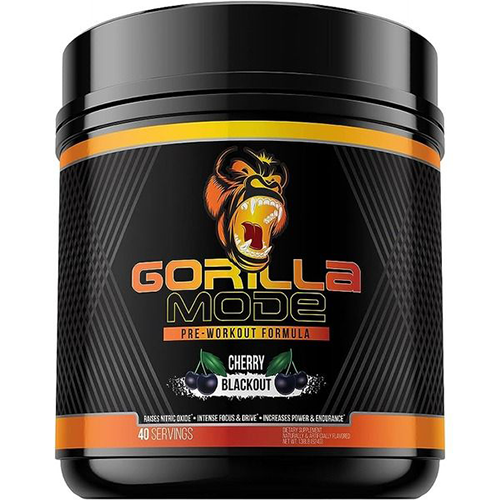Nutritional supplements can indeed have a significant impact on the brain’s functioning. The way we think about food can actually modulate neural activity in specific brain areas that are involved in controlling our appetitive behaviors. This means that even just the thought of food can trigger physiological responses such as saliva production, gastric acid secretion, and insulin secretion (Berthoud, 2007).
But it doesn’t stop there. When we actually encounter food, our sense of smell and taste come into play, acting as additional stimuli that can trigger the recall of memorial representations of past experiences with certain food items. These memorial representations can be either pleasant or unpleasant, depending on our previous encounters with the specific food or taste.

Nutritional Supplements
So, what does all of this mean? Well, it’s clear that nutrition, including the use of nutritional supplements, can have a profound impact on how our brains function. The nutrients we consume provide the building blocks for various essential processes in the brain.
For example, omega-3 fatty acids found in fish oil supplements have been shown to support brain health and cognitive function. These fatty acids are crucial for the structure and function of brain cell membranes and can also help reduce inflammation in the brain.
Similarly, B vitamins, particularly vitamin B12 and folate, play a vital role in maintaining healthy brain function. They are essential for the production of neurotransmitters, which are chemical messengers that allow nerve cells to communicate with each other.
Furthermore, antioxidants like vitamin C and vitamin E found in some supplements can help protect the brain against oxidative stress and damage caused by free radicals. These harmful molecules can accumulate in the brain and contribute to age-related cognitive decline.
In addition to these specific nutrients, there are also herbal supplements that have been traditionally used to support brain health. For example, ginkgo biloba has been used for centuries in traditional Chinese medicine to improve memory and cognitive function.
Brain Health
However, it’s important to note that while nutritional supplements can be beneficial for brain health, they should not be seen as a magic solution or a replacement for a healthy diet. A balanced diet that includes a variety of nutrient-rich foods is still the best way to ensure optimal brain function.
Before starting any new supplement regimen, it’s always a good idea to consult with a healthcare professional or a registered dietitian who can assess your individual needs and recommend the most appropriate supplements for you. They will take into account factors such as your overall health, any existing medical conditions, and any medications you may be taking.
Surprisingly, nutrition and supplements do indeed influence brain functioning. By providing the proper building blocks and supporting essential processes in the brain, they can help maintain and improve cognitive function. However, it’s important to approach supplementation with caution and always seek professional guidance to ensure you’re making informed choices for your brain health.
Cognitive Performance in Sports
Cognitive performance plays a crucial role in sports, particularly in team sports that involve dynamic, unpredictable, and externally-paced environments. In these types of sports, players need to react quickly and make split-second decisions based on the changing circumstances of the game.
Research has shown that strong visual attention and executive function are vital for success in open skill sports (Huijgen et al., 2015). Visual attention allows players to focus on relevant cues and filter out distractions, while executive function helps in planning, organizing, and executing actions effectively.
Working memory also plays a significant role in decision making during a game. It refers to the ability to hold and manipulate information in mind for short periods. In team sports, athletes need to consider various factors such as the position of their teammates, opponents’ movements, and game strategies. Working memory enables players to process this information and make quick decisions accordingly (Pesce et al., 2007).
Cognitive Flexibility
Moreover, cognitive flexibility and inhibitory control are essential cognitive functions required in open skill sports. Cognitive flexibility allows athletes to adapt their strategies and actions based on the changing demands of the game. It helps in reacting to unexpected situations and adjusting gameplay accordingly. Inhibitory control is crucial for suppressing irrelevant thoughts or distractions that may hinder performance. It enables athletes to stay focused on the task at hand and avoid making impulsive decisions (Huijgen et al., 2015).
Fatigue, whether mental or physical, can significantly impact cognitive performance during sports activities. Research has shown that both types of fatigue can impair decision making, attention, and other cognitive functions necessary for optimal performance (Pesce et al., 2007).
When an athlete becomes mentally fatigued, their ability to concentrate and sustain attention may decrease. This can lead to errors in decision making and slower reaction times. Mental fatigue can also reduce working memory capacity, making it challenging to process and retain information during the game.
Physical Fatigue and Cognitive Performance
Physical fatigue can also have a negative impact on cognitive performance. When athletes are physically tired, their overall alertness and ability to focus may decline. This can affect visual attention and executive function, leading to poor decision making and decreased efficiency in executing actions.
To optimize cognitive performance in sports, it is essential for athletes to manage both mental and physical fatigue effectively. Adequate rest, recovery strategies, and proper nutrition are crucial in minimizing fatigue levels. Additionally, incorporating cognitive training exercises into training routines can help improve cognitive skills such as attention, working memory, and decision making.
Subsequently, cognitive performance plays a vital role in open skill sports where athletes must react quickly to changing situations. Strong visual attention, executive function, working memory, cognitive flexibility, and inhibitory control are all essential for success in these sports. Fatigue, whether mental or physical, can impair cognitive performance and hinder optimal decision making. Therefore, it is crucial for athletes to prioritize rest, recovery, proper nutrition, and cognitive training to enhance their cognitive abilities and ultimately improve their performance on the field.
Nutritional Supplements and Fatigue
Nutritional supplements can play a significant role in managing fatigue and improving performance. The brain plays a crucial role in our perception of fatigue, and certain nutrients can have a direct impact on the central nervous system, helping to combat fatigue and enhance performance.
One group of nutrients that has shown promise in combating fatigue is amino acids, particularly branched-chain amino acids (BCAAs) and tyrosine. BCAAs are essential amino acids that are not produced by the body and must be obtained through diet or supplementation. They have been found to reduce mental fatigue and improve cognitive performance during prolonged exercise (Blomstrand et al., 1997; Matsumoto et al., 2009). Tyrosine, another amino acid, has been shown to improve cognitive function and reduce fatigue under stressful conditions (Deijen et al., 1999).
Combating Fatigue During Exercise
Carbohydrates (CHO) also play a crucial role in combating fatigue. During exercise, the body relies on CHO as a primary source of fuel. By consuming CHO before or during exercise, you can help maintain blood glucose levels, delay fatigue, and improve performance (Coggan et al., 1991; Burke et al., 2011).
Caffeine is another popular supplement that can help combat fatigue and improve performance. It acts as a central nervous system stimulant, reducing the perception of fatigue and increasing alertness (Ganio et al., 2009). However, it is important to note that individual responses to caffeine can vary, and it may not be suitable for everyone.
It’s important to remember that while nutritional supplements can be beneficial in managing fatigue, they should not replace a balanced diet. A well-rounded diet that includes a variety of nutrient-dense foods is essential for overall health and energy levels.
Specifically, nutritional supplements such as BCAAs, tyrosine, carbohydrates, and caffeine can play a significant role in combating fatigue and enhancing performance. However, it’s essential to consult with a healthcare professional or registered dietitian before starting any supplementation regimen to ensure it aligns with your individual needs and goals.
Tyrosine and Fatigue
Tyrosine is an amino acid that has been studied for its potential role in reducing fatigue and improving cognitive function. While brain function is not determined by a single neurotransmitter system, the interaction between brain serotonin (5-HT) and dopamine (DA) during prolonged exercise has been explored as having a regulative role in the development of fatigue.
According to the revised central fatigue hypothesis, an increase in the central ratio of 5-HT to DA is associated with feelings of tiredness and lethargy, which can accelerate the onset of fatigue. On the other hand, a low ratio of 5-HT to DA may favor improved performance by maintaining motivation and arousal.
So, where does tyrosine come into play?
- Tyrosine is a precursor to dopamine, meaning it is used by the body to produce dopamine. By increasing dopamine levels, tyrosine may help maintain a balanced ratio of 5-HT to DA, potentially reducing feelings of fatigue and improving cognitive function.
But how does this work exactly?
- During prolonged exercise or periods of stress, the body’s demand for dopamine increases. Tyrosine supplementation can provide the body with an additional source of this important neurotransmitter, helping to meet the increased demand and potentially preventing a shift towards higher levels of 5-HT.
It’s important to note that while tyrosine may have potential benefits for reducing fatigue, it should not be seen as a magic solution. Fatigue is a complex phenomenon influenced by various factors, including physical exertion, mental stress, and sleep quality. Tyrosine supplementation alone may not be enough to completely eliminate fatigue.
Tyrosine Supplementation
Additionally, individual responses to tyrosine supplementation may vary. Some individuals may experience noticeable improvements in cognitive function and reduced fatigue, while others may not see significant effects. Factors such as genetics, overall health, and lifestyle habits can all influence how the body responds to tyrosine supplementation.
Significantly, tyrosine is an amino acid that plays a role in dopamine production and has been studied for its potential benefits in reducing fatigue and improving cognitive function. While it may help maintain a balanced ratio of 5-HT to DA, it’s important to consider that fatigue is a complex phenomenon influenced by various factors. Consulting with a healthcare professional or qualified nutritionist can provide personalized guidance on whether tyrosine supplementation may be beneficial for your specific needs.
Caffeine and Fatigue
Caffeine and fatigue are topics that have been extensively studied in the scientific community. Numerous human studies have been conducted to investigate the effects of caffeine on performance, and the results have shown significant improvements in various scenarios.
When it comes to endurance exercise, caffeine has consistently been shown to be ergogenic, meaning it enhances performance. Several studies have demonstrated that caffeine intake can improve prolonged endurance exercise performance (Roelands & Meeusen, 2010; Maughan et al., 2018; Peeling et al., 2018; Rawson et al., 2018). This means that if you’re engaging in activities like long-distance running or cycling, consuming caffeine beforehand may help boost your performance.
However, the effects of caffeine on other types of physical activities, such as single-sprint, multiple-sprint, or team sports, are not as consistent in the literature. Some studies suggest that a low dose of caffeine, up to 6 mg·kg−1 (based on body weight), may enhance intermittent sprint performance (Bishop, 2010). This could be beneficial for sports like soccer or basketball, which involve short bursts of intense activity followed by periods of rest.
It’s important to note that while caffeine may improve intermittent sprint performance, there is no apparent increase in the rate of fatigue development. This means that although you may feel more energized and perform better during the sprints, your overall fatigue level may remain similar to what it would be without caffeine.
Presently, caffeine has been shown to have positive effects on performance in various scenarios. It can enhance endurance exercise performance and potentially improve intermittent sprint performance. However, it’s important to consider individual differences and experiment with different doses to find what works best for you. Additionally, it’s crucial to maintain a balanced and healthy lifestyle overall to combat fatigue effectively.
Brain and Ginseng
Ginseng is a popular herb that is often used by individuals who are feeling fatigued and stressed. It is believed to have numerous health benefits, including improving cognitive function and boosting energy levels. However, when it comes to the cognitive aspects of ginseng, the research has shown mixed results.
According to a study conducted by Gorby et al. in 2010, most studies on the cognitive effects of ginseng, such as alertness, fatigue, mood, and motivation, have yielded inconsistent results. This means that while some studies have shown positive effects on these cognitive aspects, others have not found any significant improvements.
Improved Fatigue and Motor Skills
In a study conducted by Dalinger in 1966 on biathlon athletes, it was found that ginseng improved ratings of fatigue and motor skills, specifically in target hits during the shooting event. This suggests that ginseng may have some positive effects on performance under exercise-induced mental and physical stress.
However, it is important to note that there is currently not enough evidence to conclusively support the cognition-enhancing effects of ginseng. In a study conducted by Geng et al. in 2010 and another by Smith et al. in 2014, it was concluded that there is insufficient evidence to prove that ginseng has a significant impact on cognitive function.
While ginseng may provide some benefits in terms of reducing fatigue and improving motor skills under stress, it is not yet clear whether it can truly enhance cognitive abilities such as memory, focus, and attention.
Particularly, ginseng is commonly used by individuals who are fatigued and stressed, but its impact on cognitive function is still uncertain. The research on this topic has yielded mixed results, with some studies showing positive effects while others find no significant improvements. Therefore, if you are considering using ginseng for cognitive enhancement, it is important to consult with a healthcare professional and consider other alternatives as well.
Conclusion
Nutritional supplements have become increasingly popular in recent years, with people seeking ways to optimize their brain health and cognitive function. The brain, being a highly energy-demanding organ, requires a constant supply of essential nutrients to function at its best. However, when it comes to the effects of nutritional supplements on the brain, the research is somewhat limited.
Several nutrients and supplements have been found to influence brain functioning to some extent. However, it is worth noting that many of these findings are based on anecdotal evidence rather than well-controlled scientific studies. Therefore, it is important to approach these claims with caution until further research is conducted.
Two commonly consumed substances that have been shown to have an impact on cognitive function are carbohydrates and caffeine. Carbohydrates provide the brain with its primary source of fuel, glucose. Consuming carbohydrates before or during cognitive tasks has been found to enhance certain aspects of cognitive performance, such as memory and attention. Caffeine, on the other hand, is a stimulant that can increase alertness and improve focus. It has also been shown to enhance exercise performance by reducing perceived exertion and increasing endurance.
Herbal Products
When it comes to herbal products, the evidence supporting their effects on brain functions is mostly based on anecdotal reports. While some individuals claim to experience cognitive improvements after taking certain herbal supplements, such as ginkgo biloba or Bacopa monnieri, these claims have not been extensively studied in well-controlled scientific experiments.
It is important to note that the impact of nutritional supplements on brain health may vary from person to person. Factors such as individual differences in metabolism and genetics can influence how our bodies respond to these supplements. Therefore, what may work for one person may not necessarily work for another.
In conclusion, while there is some evidence to suggest that certain nutritional supplements can influence brain functioning, more well-controlled studies are needed to determine the exact dosage and effectiveness of these supplements. It is always advisable to consult with a healthcare professional before starting any new dietary regimen or adding nutritional supplements to your routine.
References
Meeusen, R., & Decroix, L. (2018). Nutritional Supplements and the Brain. International Journal of Sport Nutrition and Exercise Metabolism, 28(2), 200-211. Retrieved Jan 19, 2024, from https://doi.org/10.1123/ijsnem.2017-0314
Berthoud, H. (2007). Interactions between the “cognitive” and “metabolic” brain in the control of food intake. Physiology & Behavior, 91, 486–498. PubMed doi:10.1016/j.physbeh.2006.12.01
Huijgen, B.C., Leemhuis, S., Kok, N.M., Verburgh, L., Oosterlaan, J., Elferink-Gemser, M.T., & Visscher, C. (2015). Cognitive functions in elite and sub-elite youth soccer players aged 13 to 17 years. PLoS ONE, 10(12), e0144580. PubMed doi:10.1371/journal.pone.0144580
Blomstrand E, Hassmén P, Ek S, et al. Influence of ingesting a solution of branched-chain amino acids on perceived exertion during exercise. Acta Physiol Scand. 1997;159(1):41-49.
Deijen JB, Orlebeke JF. Effect of tyrosine on cognitive function and blood pressure under stress. Brain Res Bull. 1999;48(2):203-209.
Coggan AR, Coyle EF. Effect of carbohydrate feedings during high-intensity exercise. J Appl Physiol Respir Environ Exerc Physiol. 1988;65(4):1703-1709.
Burke LM, Hawley JA, Wong SHS, Jeukendrup AE. Carbohydrates for training and competition. J Sports Sci. 2011;29 Suppl 1:S17-S27.
Ganio MS, Klau JF, Casa DJ, Armstrong LE, Maresh CM. Effect of caffeine on sport-specific
Bishop, D. Dietary Supplements and Team-Sport Performance. Sports Med 40, 995–1017 (2010). https://doi.org/10.2165/11536870-000000000-00000





